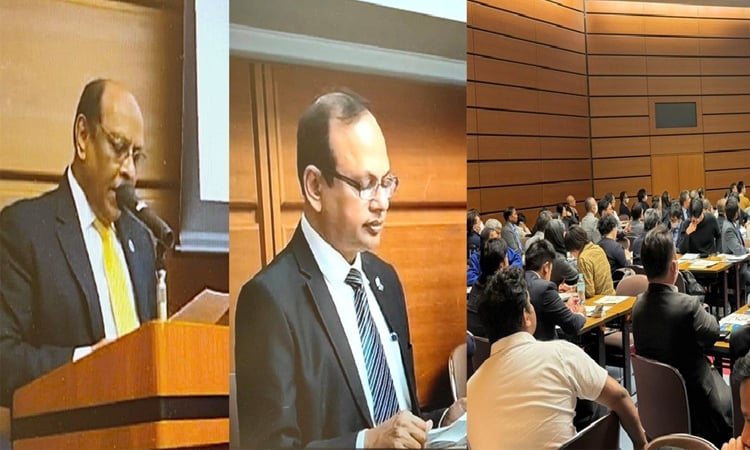News Flash
News Flash

DHAKA, Nov 7, 2025 (BSS) – Bangladesh will take all possible steps to help address Japan’s projected shortage of 11 million workers by 2040, Senior Secretary of the Ministry of Expatriates’ Welfare and Overseas Employment Dr. Neyamat Ullah Bhuiyan said today.
He said both countries would benefit from the joint efforts of Bangladeshi and Japanese recruiting organizations to meet Japan’s growing labour demand while ensuring decent employment opportunities for skilled Bangladeshi workers.
Bhuiyan made the remarks at a seminar titled “Bangladesh: A Highly Potential Source Country of Skilled Human Resources for Japan”, held at a conference centre in Nagoya, Japan, organized by the Bangladesh Embassy in Tokyo, according to a message received here.
The event, supported by the Japan International Trainee and Skilled Worker Cooperation Organization (JITCO), was followed by a business matching session.
Around 250 manpower-sending and recruiting organizations from both countries participated in the event.
Bangladesh’s Ambassador to Japan, Md. Daud Ali, assured full cooperation from the Embassy in facilitating the smooth deployment of skilled Bangladeshi workers to Japan.
Highlighting comparative workforce statistics, Dr. Bhuiyan noted that Japan is expected to recruit around 11 million foreign workers by 2040, while Bangladesh has a surplus of about 25 million working-age individuals, a trend likely to persist until that time.
He said 33 Technical Training Centres (TTCs) have been designated to prepare Bangladeshi workers for the Japanese market, and the number could be increased if required. He also mentioned the establishment of a dedicated “Japan Cell” within the ministry to coordinate activities and communication related to the Japanese labour market.
Ambassador Shigeo Matsutomi, Senior Vice President of JITCO, presented an overview of global labour trends and Japan’s employment prospects.
Later, four agreements were signed between Bangladeshi manpower-sending agencies and Japanese recruiting companies to boost bilateral labour cooperation.